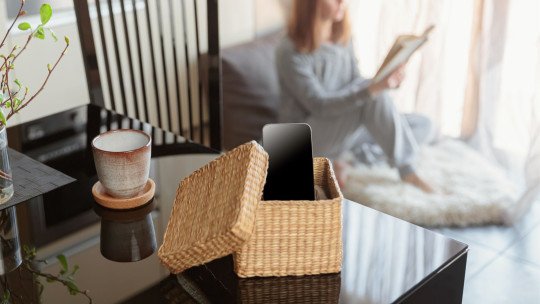In a hyper-connected world, where social interaction and constant access to technology are the norm, spending time alone can seem disconcerting to many. Loneliness is often associated with feelings of sadness, isolation and disconnection, perceiving it negatively. However, there is a crucial difference between unwanted loneliness and consciously chosen alone time.
Alone time not only gives us the opportunity to reflect on our lives, but it also allows us to recharge, foster creativity, and improve our decision-making abilities. Additionally, this personal space can enrich our interpersonal relationships, strengthening emotional independence and allowing us to return to our social interactions with a renewed perspective.
In this article, we will explore the many benefits of spending time alone and how this practice can contribute to greater overall well-being. We will address both the psychological and social aspects of voluntary loneliness, also recognizing the challenges it can present and offering strategies to overcome them. Learning to enjoy time alone is not only beneficial, but essential to leading a balanced and conscious life in an increasingly demanding and connected environment.
What is it really like to be alone?
When we talk about spending time alone, it’s crucial to distinguish between two concepts that are often confused: unwanted loneliness and voluntary alone time. Unwanted loneliness is that feeling of isolation and social disconnection that can be deeply distressing. This form of loneliness is often associated with the feeling of being alone, even when surrounded by people, and can have negative effects on mental health, such as increased stress, anxiety or depression.
On the other hand, Voluntary alone time is a conscious choice to spend time without the company of others, which is not associated with feelings of sadness or isolation. In this context, being alone does not mean feeling alone. Instead, it represents an opportunity to connect with yourself, recharge, and reflect without external distractions. This differentiation is critical to understanding the potential benefits of alone time.
It is important to note that alone time is not the same for everyone. Some people find it a necessary refuge for their well-being, while others may see it as something uncomfortable. However, understanding and practicing voluntary alone time can transform this experience into something positive, moving it away from the negative connotation often associated with unwanted loneliness. Thus, recognizing this difference allows us to explore how alone time, when well managed, can significantly enrich our lives.
Psychological benefits of alone time
Spending time alone, when it is a personal choice and not an imposition, can offer a wide range of psychological benefits.
1. Personal reflection
One of the most important is personal reflection. In a world where social interaction and constant connection are the norm, alone time allows space for introspection. This period of reflection is crucial to know ourselves better, to understand our emotions, thoughts and desires without the influence of others. By disconnecting from external distractions, we can do a deeper analysis of our lives and make decisions that are more aligned with our true interests and values.
2. Stress reduction
Another key benefit is stress reduction. Modern life is full of demands and pressures, both at work and in your personal life. Time alone offers a respite from these demands, allowing the mind and body to rest and recover. This personal space can act as a form of self-care, where tranquility and calm help us lower levels of cortisol, the stress hormone. By temporarily stepping away from the daily hustle and bustle, we can recharge and return to our responsibilities with a fresher, more balanced perspective.
3. Creativity
Plus, alone time can be a great booster of creativity. Being alone with our thoughts allows us to explore ideas without interruption, which can lead to moments of inspiration and creativity. Great figures in history, from artists to scientists, have found in solitude the ideal environment to develop their best ideas. When we are not subject to the expectations or judgments of others, our minds are free to think more original and outside of conventional boundaries, which can lead to innovation and the creation of unique solutions.
4. Decision making
Finally, Alone time can also improve decision making. By being alone, we have the opportunity to evaluate our options without the influence of the opinions of others, allowing us to consider the pros and cons more objectively. This intentional solitude gives us a space to think clearly, weigh our priorities, and make decisions that best reflect our authentic needs and desires.
Social benefits of alone time
Contrary to what you might think, alone time not only has individual benefits, but it can also positively impact our social relationships.
1. Strengthening relationships
One of the main benefits is the strengthening of interpersonal relationships. By spending time alone, we can reflect on our interactions with others, identify patterns in our relationships, and evaluate what we really value in them. This process of introspection helps us become more aware of our needs and limits, which, in turn, allows us to establish healthier and more satisfying relationships. Besides, By having a personal space to recharge, we are able to offer a better version of ourselves in our interactions with others.
2. Emotional independence
Alone time also contributes to emotional independence, a crucial aspect for developing balanced relationships. When we are able to be well with ourselves without depending on the constant presence of others, we develop an emotional self-sufficiency that allows us to relate from a place of plenitude, rather than need. This independence makes us less likely to establish codependent relationships and more apt to maintain relationships based on mutual respect and authenticity.
3. Renewed perspective
Another significant benefit is the renewed perspective that time alone provides us. By temporarily removing ourselves from social interaction, we gain a new appreciation for the relationships and people in our lives. This distance allows us to see things from a different angle and return to our connections with a more open and grateful attitude. Ultimately, Alone time not only benefits us individually, but also enriches our relationships, making us more aware, balanced, and able to cultivate deeper, more meaningful bonds.
Challenges and how to address them
Although alone time can be very beneficial, it is not without its challenges. Let’s review some of the main challenges we may face when we seek to spend more time alone.
1. Fear of loneliness
One of the biggest obstacles is the fear of loneliness, which many people experience when being alone. This fear, which often arises from the idea that loneliness equals isolation or rejection, can make time alone feel uncomfortable or even distressing. To overcome this fear, it is important to change our perspective, seeing loneliness not as a lack, but as an opportunity for self-knowledge and personal growth. Starting with short periods of time alone and gradually extending them can help develop greater comfort and enjoyment in solitude.
2. Proper balance
Another common challenge is finding the right balance between alone time and social interaction. Spending too much time alone can lead to social isolation, which is detrimental to mental health. Therefore, It is important to identify our personal needs and make sure we are maintaining a healthy balance. Scheduling both social and individual activities can be a useful strategy to achieve this harmony.
3. Practical strategies
Finally, it is essential to develop practical strategies to enjoy alone time in a healthy way. Practicing activities that we are passionate about, such as reading, meditating or walking, can make these moments more pleasant and productive. Besides, Taking advantage of this time to disconnect from technology and social networks can increase the benefit allowing us a real disconnection from outside noise and a deeper connection with ourselves.
Conclusions
In conclusion, spending time alone, far from being harmful, can offer numerous psychological and social benefits. This time allows for introspection, reduces stress, encourages creativity and improves decision making. Likewise, it reinforces emotional independence and enriches interpersonal relationships. However, It is essential to address associated challenges, such as fear of loneliness and the need to maintain a healthy balance between loneliness and social interaction. By recognizing and taking advantage of these benefits, alone time can become a valuable tool for holistic well-being.









